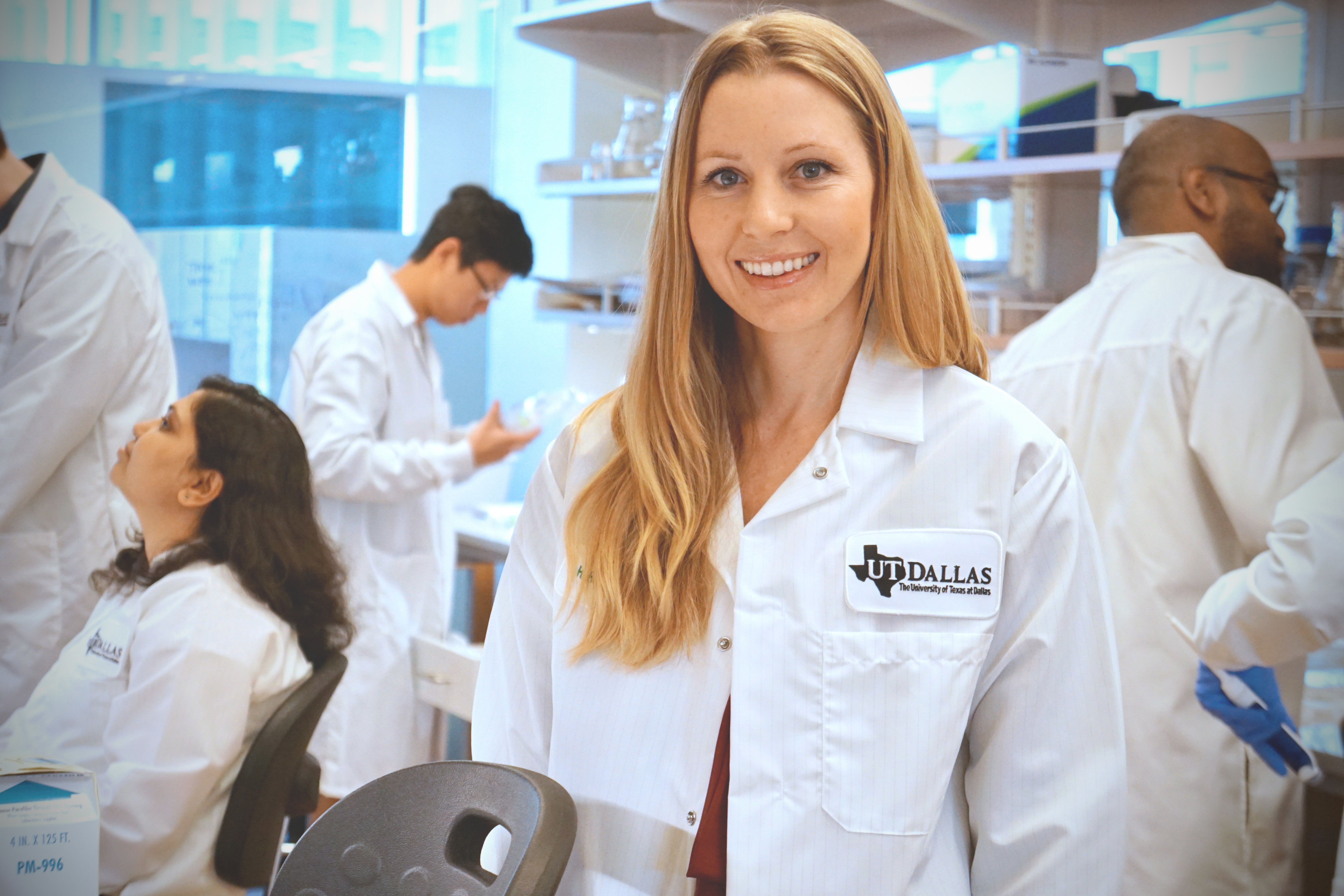Solitary Fibrous Tumors (SFT) Research
 Solitary fibrous tumors (SFTs), also known as hemangiopericytoma, is a very rare type of cancer for which there is no known cure, and no known chemo that consistently works well to combat it. Patients usually use surgery and radiation to remove tumors as they appear, but the effectiveness is limited. Because it is such a rare type of cancer, there has been relatively little research done on it, and most oncologists in the U.S. have limited experience with it. This makes it distressing for the patients who have been diagnosed with it. The research at UT Dallas, led by Dr. Leo Bleris and Dr. Heather Hayenga are actively pursuing research to identify a safe long-term treatment for SFT.
Solitary fibrous tumors (SFTs), also known as hemangiopericytoma, is a very rare type of cancer for which there is no known cure, and no known chemo that consistently works well to combat it. Patients usually use surgery and radiation to remove tumors as they appear, but the effectiveness is limited. Because it is such a rare type of cancer, there has been relatively little research done on it, and most oncologists in the U.S. have limited experience with it. This makes it distressing for the patients who have been diagnosed with it. The research at UT Dallas, led by Dr. Leo Bleris and Dr. Heather Hayenga are actively pursuing research to identify a safe long-term treatment for SFT.
Solitary fibrous tumors (SFTs) are suspected to be caused by a fusion of two genes – NAB2 and STAT6. Since 2020, Dr. Hayenga and her colleagues have been intensely studying SFT. As such the lab is now well positioned to find a cure. The team has established animal models, and 2 engineered and 5 primary cells lines of SFT. Using the cancer cells and animal models, they have promising preliminary results in pursuit of each of the four therapeutic strategies:
Therapeutic Strategy 1: STAT6 and Fusion-Specific ASOs (Anti-sense Oligonucleotides) Cure
-Design ASOs that selectively inhibit the fusion transcript
-Test the ability of the fusion-targeting ASOs to suppress the fusion transcript and reduce cell proliferation in-vitro
-Optimize delivery efficiency by adding modifications or packaging the ASOs into exosomes
-Conduct animal studies to test the efficacy of the ASOs to suppress tumor growth in-vivo while remaining non-toxic
-If successful, team up with an ASO company/manufacture to make the ASO for clinical use. File an FDA single-patient IND for translation into the clinic.
Therapeutic Strategy 2: Pharmaceutical Cure
- Do genetic sequencing (RNA-Seq) to see if there is a novel protein created by the fused genes that can be targeted
- Test the ability of potentially promising pharmaceuticals on the market to kills/slow the growth of the cancer cells in-vitro
- Run a panel of >2,000 small molecules (proteins) with random functionalities to see if any target a signaling pathway of these cells and slow/stop their growth (i.e. try to find a novel pharmaceutical)
- If any work, team up with a pharmaceutical company to try to make a drug, test in our animal model, then get FDA approval to use in patients.
- Test the ability of potentially promising pharmaceuticals on the market to kills/slow the growth of the cancer cells in-vitro
- Run a panel of 1,200 small molecules (proteins) with random functionalities to see if any target a signaling pathway of these cells and slow/stop their growth (i.e. try to find a novel pharmaceutical)
-Conduct animal studies to determine efficacy and toxicity
- If any work, team up with a pharmaceutical company to try to make a drug, test in our animal model, then get FDA approval to use in patients.
Therapeutic Strategy 3: Gene Therapy Cure
- Develop a gene editor (CRISPR-Cas13) to reverse the cancer mutation at the RNA level
- Package this gene editor into an inert virus (adenovirus) and test its ability to correct the cancer cells in a petri-dish (in-vitro)
- Insert the tumor cells into mice and then test the virus packed gene editors ability to target and slow/stop the growth of the tumor in an animal tumor model (in-vivo)
-Run toxicology tests to confirm minimal side-effects. And improve deliverability as needed.
- If it works, get the virus-gene editor system approved by the FDA (IND or compassion case) to try in patients who qualify
Therapeutic Strategy 4: Immunotherapy Cure
-Predict the expression of a fusion peptide on the MHC-1 complex in tumor cells
-Isolate the MHC-1 complex using immunoprecipitation
-Test for novel fusion peptides using Mass Spectrometry
-If a novel peptide exists, design antibodies to target the peptide and MHC I-mediated CAR-T cells for immunotherapy
-Complete animal studies to determine efficacy and toxicity
- If it works, get the MHC I-mediated CAR-T immunotherapy system approved by the FDA (IND or compassion case) to try in patients who qualify
Make a Gift
Use this form to securely make your online donation. Fields marked with an * are required. UT Dallas faculty and staff can make gifts online or via payroll deduction.